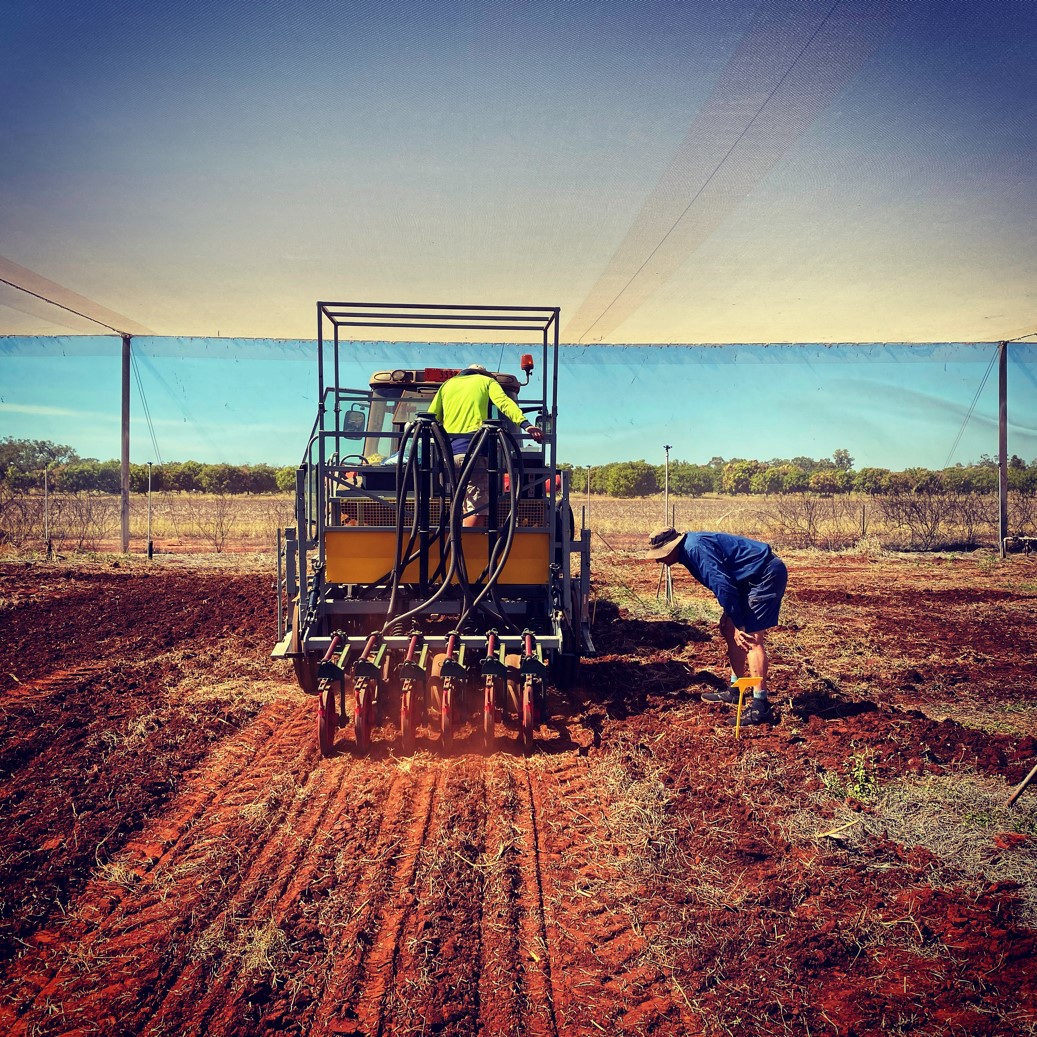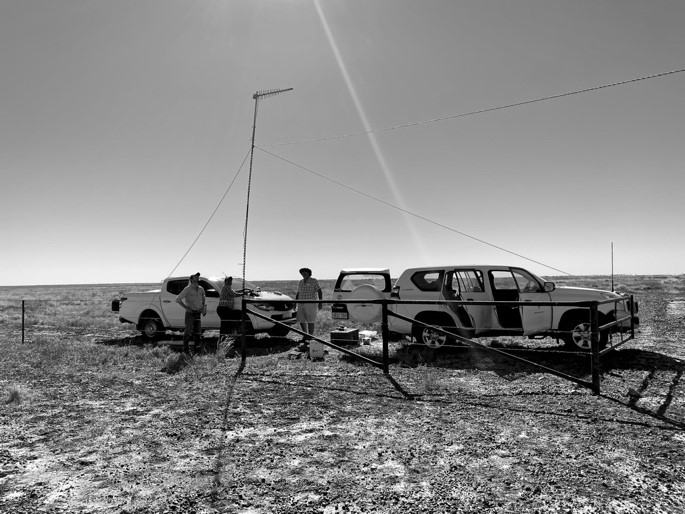NT Rural Review - August 2021
Note from our guest editor: Dr Kieren McCosker
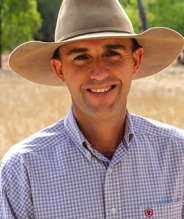
Welcome to the August 2021 issue of the NT Rural Review, which comes to you as we blitz past the halfway mark for 2021 and tackle a new financial year!
Being invited to provide this editorial piece is very much appreciated. I have been asked to personalise the editorial rather than follow the tradition of introducing the items in the current issue…evidently, they can speak for themselves! That said, I will still take the opportunity to fly the Katherine flag and highlight a few activities that have recently occurred in the region.
But, to introduce me! I was raised on a sheep and cattle property in south-west Queensland near St. George, before completing a Bachelor of Agricultural Science, majoring in animal science and sometime afterwards I completed my PhD on the CashCow project. Both degrees were completed with the University of Queensland. Since the retirement of Neil MacDonald, I’ve been filling the role of Regional Director, Katherine while also maintaining an active research role. I completed 19 years of livestock research within the primary industries area of the Northern Territory Government. Over that time, I participated in numerous research activities that investigated many aspects of beef production. This work took me across northern Australia and throughout Indonesia.
Katherine Research Station (KRS) is a hive of activity at the moment, with the implementation of several new research programs and the most successful bull and female sales on record occurring and generating nearly $750,000 in sales. The average sale price of bulls was $3,450 and 73% clearance for those presented for sale. For cows, the average Brahman cow price was just over $3,000 with a top price of $5,000 and the average was just over $2,100 for Composites with a top price of $3,400. This is a possible indicator of a growing demand by industry for the type of cattle produced by Department of Industry, Tourism and Trade under high-fertility Brahman and Composite breeding programs.
Plant industries staff have established 2 new research activities in the bird exclusion area on KRS.
Industrial hemp is being grown to demonstrate its potential – particularly to find a variety suitable for the Northern Territory (photo 1), while an integrated forage oats and chickpea trial is being undertaken to assess the potential of this crop rotation system.
Meanwhile, there is a certain buzz of excitement within the Livestock Industries crew. New Producer Demonstration Sites (PDS) have been established at Newcastle Waters Station to demonstrate delivering supplements using new water medication technology. Staff have also been busy organising the Victoria River Research Station Field Day and BeefUp Forum (19-20 November), while servicing the needs of several established projects. Thousands of weaners are being inducted into the Northern Territory, Western Australian and Queensland pain relief trial that evaluates the production benefits of using pain relief products during standard husbandry procedures.
Data from the study on reducing calf loss from exposure was received after the second cohort of cows and calves were recently mustered and processed. A quick comparison between the lactation rate for shaded and unshaded paddocks was observed this year, potentially suggesting a 10% higher calf loss in the unshaded paddock – an interesting finding that contrasts with last year. Last year, 225 GPS collars were fitted and 97% have now been retrieved, an excellent result, and data is currently being downloaded from them. Preparations for the 2021 to 2022 season are underway with the deployment of real-time GPS tracking and calving alert technology planned. We managed to successfully connect into the mobile network from approximately 50km away, which means that we should be able to ensure good data flow from GPS and calving sensors (photo 2). Hopefully, we will obtain some highly intensive data that can reveal associated causes of calf loss – a major cost to the northern beef industry.
As well as action on the ground, substantial effort has been placed on better resourcing the region. Recruitment is underway to attract staff to fill 4 vacancies across professional, technical and extension services based within the region, at either the Victoria River or Katherine Research stations. These actions are yet to be finalised, but introductions can occur in the next edition of this newsletter. In the meantime, I hope you enjoy this issue of the NT Rural Review.
All the best,
Kieren
Dr Kieren McCosker
A/Regional Director, Katherine & Senior Livestock Scientist
Department of Industry, Tourism and Trade | Katherine Research Station
Sort article by region
Sort article by topic
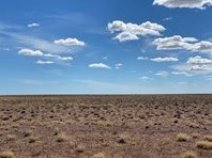
What has happened to the Mitchell grass on the Barkly?
The Barkly Tablelands are well known for productive Mitchell grass plains. However, there is growing concern about this important native pasture, with recent widespread Mitchell grass death occurring during the several years of poor rainfall across the region.
Topic: Livestock | Aug 2021
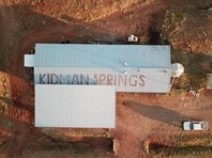
Victoria River Research Station field day
The Department of Tourism, Industry and Trade in conjunction with Meat and Livestock Australia (MLA) and the Northern Territory Cattleman’s Association, will be holding an industry event, including a research field day and Beef Up forum.
Topic: Livestock | Aug 2021
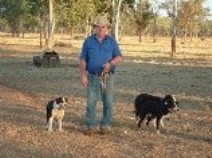
Vale, Jack Wheeler.
Ian George “Jack” Wheeler has been a part of the Katherine Research Station for so long, he’s part of the fabric of life there.
Topic: Livestock | Aug 2021
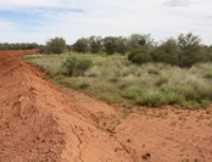
Sustainable Land Management on Central Australian Rangelands – Landcare NT Field Day
There will be a Landcare field day north of Alice Spring in October, organised by Landcare NT with support from the Centralian Land Management Association (CLMA) and the Department of Industry, Tourism and Trade.
Topic: Livestock | Aug 2021
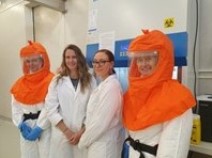
Staff try to contain their excitement at biosecurity training
The staff out at Darwin’s Berrimah Farm Science Precinct were delighted with the new multimillion dollar molecular laboratory that was opened recently.
Topic: Horticulture | Aug 2021
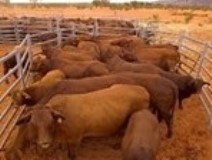
Slaughtering animals for human consumption in the Northern Territory
The slaughter of animals for human consumption is common practice in the Northern Territory (NT) on large cattle stations to feed employees and on small blocks in rural areas. The Meat Industries Act 1996 governs the slaughter of animals for consumption by the wider community.
Topic: Biosecurity | Aug 2021
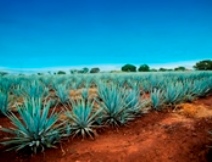
Seeking expressions of interest for on-farm agave variety trials
Funding has been secured as part of the Federal Government’s Future Drought Fund program to investigate the potential for agave as a low or no irrigation crop in Central Australia and Katherine.
Topic: Horticulture | Aug 2021

Savanna Fire Forum 2021 Snapshot
The Savanna Fire Forum is an annual gathering of Savanna Burning project practitioners and supporting researchers across northern Australia.
Topic: Livestock, Horticulture | Aug 2021
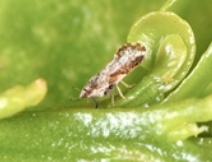
Preparedness for a potential detection of Asian citrus psyllid
Asian citrus psyllid (ACP, Diaphorina citri) is the vector of the exotic and potentially devastating disease, citrus greening (AKA Huanglongbing/HLB).
Topic: Horticulture | Aug 2021
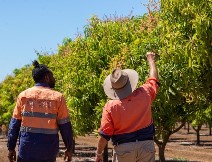
No madness in these mango methods
The Territory’s mango industry is ensuring it’s at the forefront of the sector by applying the latest growing, picking and protection techniques.
Topic: Horticulture | Aug 2021

New Western Australian (WA) LB1 health certificates are in effect for livestock importation from 1 July 2021
The new WA health certificates are now species-specific with particular requirements.
Topic: Biosecurity | Aug 2021
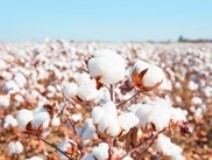
Modern cotton in the Northern Territory
The Territory is renowned for producing quality mangoes and other tropical fruit, vegetables, grapes, ornamental plants, pastures and fodder crops, but interest in broadacre crops is growing as farmers and pastoralists look to diversify their businesses.
Topic: Horticulture | Aug 2021
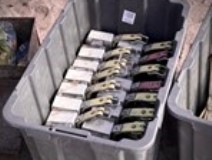
Livestock Industries Team Update
The Livestock Industries team in Katherine have many projects in full swing!
Topic: Livestock | Aug 2021
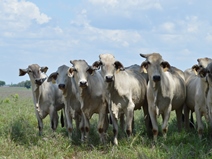
Livestock Biosecurity Legislation Review – Have your say!
Australia’s Chief Veterinary Officer recently reported that Australia has a 42% probability of an exotic disease outbreak in the next 5 years.
Topic: Livestock | Aug 2021
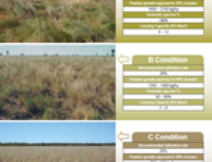
Land Condition Guides – your invaluable guides to the carrying capacity of major pastoral land types in the Northern Territory
Ever wanted to know how many animals a land type can carry over the long term? The Sturt Plateau, Barkly and VRD Land Condition Guides are a fantastic resource to estimate carrying capacity for important pastoral land types and how land condition affects it. The guides were written by Caz Pettit and incorporate decades of research by the Department of Tourism, Industry and Trade (DITT) Rangelands team.
Topic: Livestock | Aug 2021
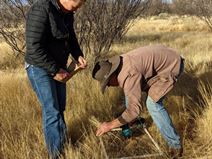
Feed management goes high tech
An increasing number of Territory cattle producers are using cutting edge technology to manage their operations.
Topic: Livestock | Aug 2021
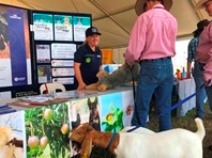
E.canis services boosted in Katherine – supporting all NT regions
Katherine region veterinary officer Dr Megan Pickering has been transferred to become the new Ehrlichia canis Management Co-ordinator managing the Department of Industry, Tourism and Trade’s contribution to the Northern Territory E.canis Management Strategy.
Topic: Biosecurity | Aug 2021
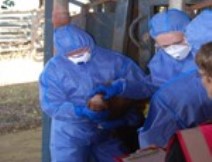
Do you know what would happen in an exotic disease response?
As a stakeholder in the Australian livestock industry, it’s important to know what would happen in an outbreak of exotic disease in Australia.
Topic: Biosecurity | Aug 2021
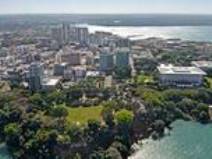
Darwin region future water supply – have your say
To increase water security for all Territorians and as part of the development of a Strategic Water Plan, the Territory Government is considering infrastructure solutions for the Darwin Region.
Topic: Horticulture | Aug 2021
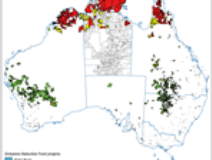
Current options to reduce greenhouse gas production and store more carbon on Northern Territory pastoral land
In the last decade, much research and policy development has focused on creating demonstrable, auditable, evidence-based ways either to reduce carbon emissions (mostly cattle burping and fires) or to increase carbon storage (sequestration) in the soil or vegetation.
Topic: Livestock | Aug 2021
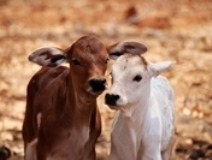
Coccidiosis at weaning
Coccidiosis, also referred to as weaning scours or black scours, is caused by a protozoal parasite known as Eimeria.
Topic: Livestock | Aug 2021
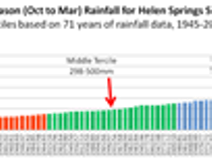
Climate variability on the Barkly Tableland
For many properties on the Barkly, the failed wet season of 2018/2019 was one of the driest on record. Tennant Creek Airport recorded only 89mm, the driest year since records began in 1970. Brunette Downs Station recorded only 134mm, making it the 3rd driest year in 126 years of recorded rainfall.
Topic: Livestock | Aug 2021
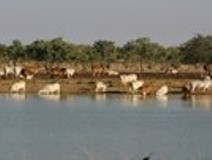
Changes to Western Australia’s Johne’s disease requirements – What do the changes mean for Northern Territory producers?
The Western Australia’s (WA) Department of Primary Industries and Regional Development (DPIRD) introduced new Johne's disease (JD) import requirements for cattle and buffalo entering WA from 1 July 2021. These changes relate to livestock owner/manager and veterinarian declarations and JD testing requirements.
Topic: Biosecurity | Aug 2021
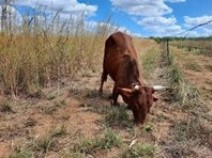
Case report: Lead toxicity in a Brahman cow
Lead toxicity was diagnosed in a pregnant Brahman cow on a small farm in the Coomalie Shire region.
Topic: Biosecurity | Aug 2021

Biosecurity services boosted in Katherine – with new recruit Izzy
The Department of Industry, Tourism and Trade is pleased to welcome I would like to welcome Isabell (Izzy) MacPhillamy, to the Livestock Biosecurity team based at the Katherine Research Station.
Topic: Biosecurity | Aug 2021
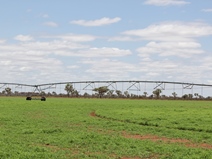
Australian Government Northern Territory water infrastructure announcement
Under the Australian Government’s $108 million National Water Grid Connections funding pathway, 40 projects are being funded across Australia to improve water security and reliability.
Topic: Horticulture | Aug 2021
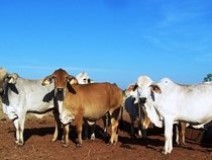
Annual Department of Industry, Tourism and Trade Female Reduction Sale
The Department of Industry, Tourism and Trade held the yearly Female Reduction Sale on Wednesday 4 August 2021.
Topic: Livestock | Aug 2021
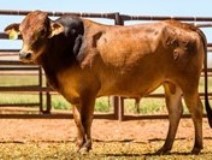
Annual Department of Industry, Tourism and Trade Bull Sale
The Department of Industry, Tourism and Trade held the annual Bull Sale on Wednesday 7 July 2021.
Topic: Livestock | Aug 2021
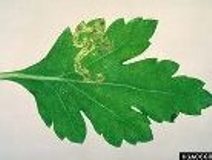
American Serpentine Leafminer detected
The Department of Industry, Tourism and Trade is increasing plant surveillance after a confirmed single sample of a leaf-mining fly in the Katherine region.
Topic: Biosecurity | Aug 2021
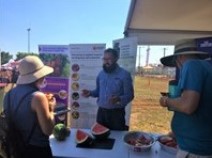
Agriculture projects and research on show in the Top End
The Department of Industry, Tourism and Trade’s (DITT) staff have been chatting up a storm with showgoers in Katherine and Darwin during July.
Topic: Horticulture | Aug 2021
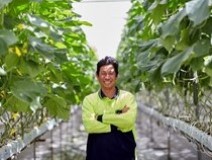
Agribusiness sector encouraged to attend October Business Month events
October Business Month (OBM) provides Territory agribusinesses access to a month long program of inspirational and educational events designed to inspire and grow Territory business.
Topic: Horticulture | Aug 2021

100th Alice Springs Pastoral Industry Advisory Committee (ASPIAC) meeting
November 2021 marks the 100th meeting for Alice Springs Pastoral Advisory Committee (ASPIAC). The meeting will be held in Alice Springs with a well-earned celebration to follow. It is definitely an accomplishment for people to come together for 100 meetings over nearly 40 years, especially in recent COVID times.
Topic: Livestock | Aug 2021

